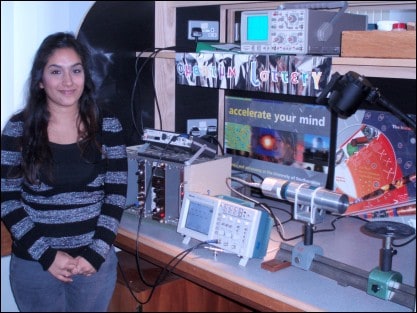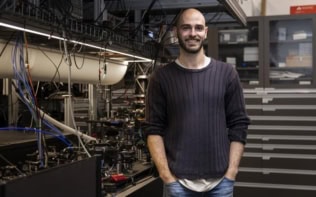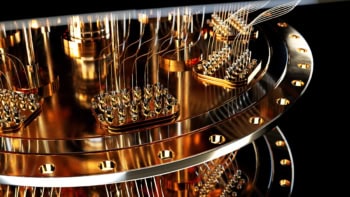Convinced the balls are always against you when you play the lottery? Then why not bet on radioactive decay in the "quantum lottery", a game invented by a university student in the UK.

Like it or loathe it (and Einstein famously loathed it), quantum processes such as radioactive decay are innately random. But in spite of its weirdness, over the past 80 years physicists have got to grips with the randomness to produce an ever-growing list of proven technology.
None can be so fun, however, as the “quantum lottery”, a project devised by final-year physics student Jaspal Jutla at the University of Southampton. The idea is to invite non-scientists from all backgrounds, young and old, to take bets on the decay of a radioactive sample. Jutla hopes this will encourage participants to think about some of the philosophical aspects of quantum mechanics that have emerged over the years. “It’s an area of physics that is extremely fascinating and has many unanswered questions,” she told Physics Web. “It can also be fun because it urges the participant to use their imagination.”
Jutla has performed many trial runs of the quantum lottery, which comprises a small amount of caesium-137 placed a few centimetres away from a scintillation crystal. Caesium-137 has a half-life of 30 years, and as it decays it emits gamma-ray photons, some of which are absorbed by the scintillation crystal and amplified into a measurable signal through a photomultiplier tube. Jutla then records the number of photons or “counts” per second and takes the average over eight seconds.
To enter, participants must go to the project website and guess whether on each of the eight seconds the number of counts will be above or below the average. On 2 May, Jutla will then perform the experiment to determine the lucky winner. Until then, however, she is aiming to promote the quantum lottery as widely as possible. So far this has mostly been via leaflets that explain some of the mysteries of quantum mechanics with a minimum of theory, but she also hopes to do presentations for local primary school children and appear on her university radio station “Surge” in the near future.
With just 256 combinations and the prize of an iPod shuffle mp3 player, there should be incentive for everyone to have a go – although Jutla admits she may have to run the experiment for longer to make more combinations if there is substantial interest. But if that’s not enough, Jutla is keen to draw attention to Hugh Everett’s “many worlds” alternative interpretation of quantum mechanics, which supposes that every possible outcome of a quantum event does indeed occur, just in its own separate universe. “I like that interpretation,” she said. “It means that everyone’s a winner.”



